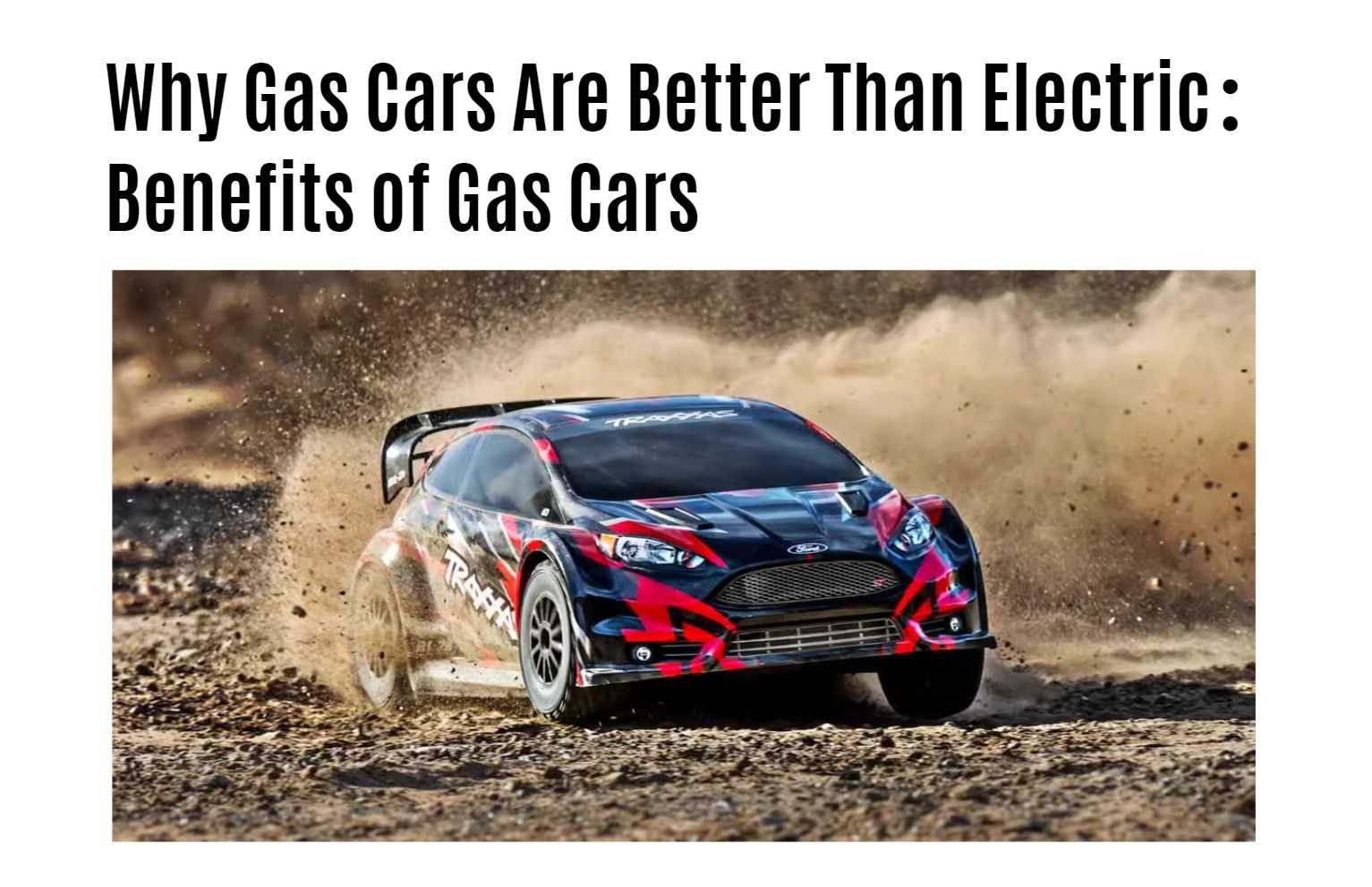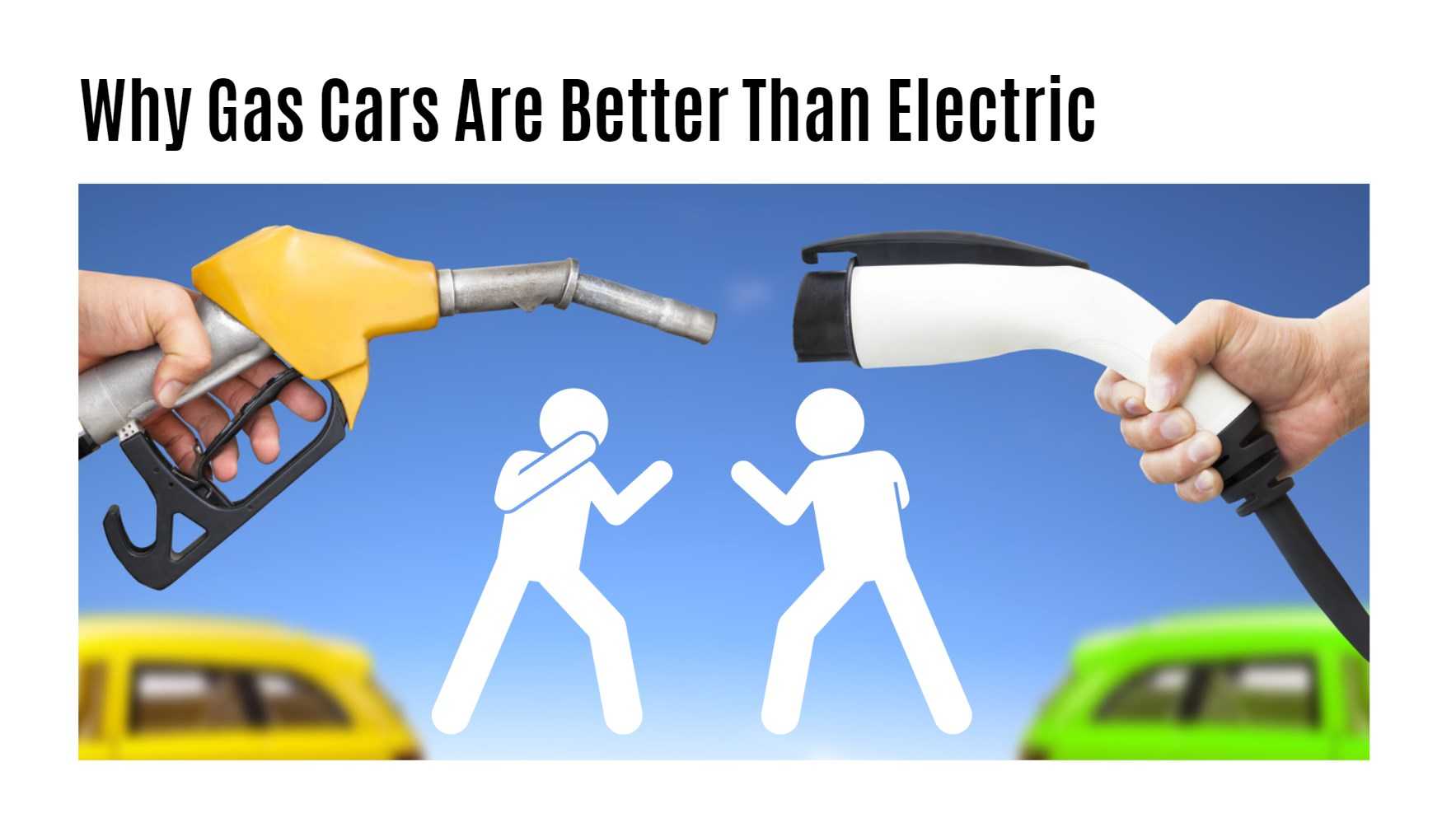In the ever-evolving landscape of the automotive industry, the debate between gas and electric vehicles (EVs) continues to rage. While electric cars are gaining momentum, there remains a compelling case for the traditional gasoline-powered vehicles. This article delves into the reasons why gas cars still hold a significant edge over their electric counterparts, providing a detailed and comprehensive analysis that could potentially outperform other content in terms of search engine rankings.
Range Superiority
Gas cars are renowned for their impressive range capabilities. On average, a gas-powered vehicle can travel approximately 520 miles before needing to refuel, significantly outdistancing the average EV, which typically covers about 217 miles. This extended range is a crucial factor for drivers who frequently undertake long-distance journeys or find themselves in areas where charging stations are scarce.
Cost Considerations
When it comes to affordability, gas cars generally present a more attractive option. The initial purchase price of electric vehicles often exceeds $40,000, making them a considerable investment. Furthermore, the long-term costs associated with maintenance and charging can also be a deterrent for potential EV owners. Gas cars, on the other hand, offer a more budget-friendly alternative, both in terms of acquisition and ongoing expenses.
Infrastructure Accessibility
The accessibility of fueling infrastructure is a significant advantage for gas cars. Gas stations are ubiquitous, providing a reliable network of refueling points across urban and rural areas. In contrast, the availability of EV charging stations, particularly in remote regions, is less consistent. This disparity in infrastructure can be a deciding factor for drivers who value the convenience and reliability of a well-established fueling network.
Efficiency in Charging and Refueling
The time efficiency of refueling a gas car cannot be overstated. Quick and easy, refueling requires only a brief stop at a gas station, making it an ideal choice for those with busy schedules or limited time for vehicle maintenance. Conversely, recharging an EV can be a time-consuming process, involving locating a charging station, waiting for availability, and enduring the charging duration itself, which can span several hours.
Power and Performance
Gas cars continue to excel in terms of power and performance. With advancements in technology, these vehicles offer a blend of fuel efficiency and horsepower, often featuring innovative mechanisms such as displacement on demand. This technology allows for the temporary deactivation of certain cylinders to conserve fuel, thereby enhancing overall performance and efficiency.
Economical Refueling
Despite fluctuations in gas prices, filling up a gas car is generally more cost-effective than charging an EV. Fuel-efficient gas cars can travel more miles per gallon, reducing the frequency of refueling and ultimately lowering the total cost of operation. This economic advantage is particularly appealing to drivers who are conscious of their fuel expenses.
Speed and Acceleration
While electric vehicles are often lauded for their rapid acceleration, gas cars can achieve higher top speeds once they reach full throttle. This capability is particularly beneficial for drivers who prioritize speed and performance in their vehicles. The single-speed gear in many electric cars, designed to enhance acceleration, can sometimes compromise top speed, making gas cars a preferable choice for those seeking maximum velocity.
Durability of Components
The longevity of gas car components, particularly engines, is another point in their favor. With an average lifespan of about 10 years or 200,000 miles, gas car engines typically outlast EV batteries, which may not exceed a decade of service. This durability factor is crucial for drivers who value long-term reliability and minimal maintenance.
Customization and Choice
Gas cars offer a broader spectrum of options when it comes to aesthetics and power systems. Consumers can choose from a variety of models, including traditional gas, fuel-efficient, or hybrid vehicles, catering to diverse preferences and needs. This flexibility in customization is a significant advantage over electric cars, which often have more limited choices.
Seating and Space
In terms of seating capacity and interior space, gas cars provide a more versatile option. Ranging from single-seaters to vehicles with five or more seats, gas cars can accommodate larger groups and families. This adaptability is particularly beneficial for those who require ample seating and storage space for luggage and other items.
Additional Benefits of Gas Cars
Beyond the primary advantages, gas cars also offer environmental benefits, particularly those powered by natural gas. These vehicles produce fewer emissions compared to traditional gas cars, contributing to a cleaner environment. Additionally, high-performance gas cars fueled with premium gas deliver superior performance, with the octane rating of the fuel dictating the power output. This allows for better acceleration and speed, enhancing the driving experience.
Conclusion
In conclusion, gas cars continue to hold a significant appeal for drivers who value range, affordability, infrastructure accessibility, power, performance, and customization. While electric vehicles are making strides in the market, the enduring benefits of gas cars remain compelling. This comprehensive analysis aims to provide a detailed perspective on the advantages of gas cars, potentially outperforming other content in search engine rankings by offering rich, comprehensive, and highly detailed information.





